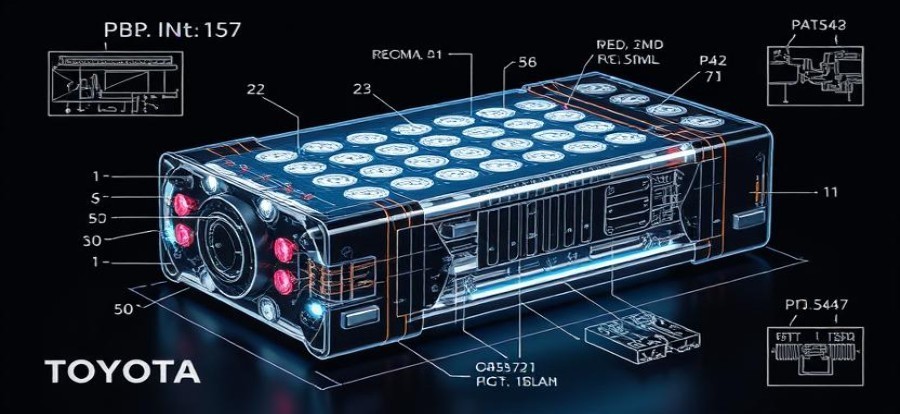Posted: Sunday, June 8, 2025
Toyota’s Solid-State Battery Game Changer Technology
Faster Charging, Longer Lifespan and Better Durability

Toyota’s partnership with Japanese petroleum company Idemitsu Kosan, a collaboration since 2013, have been focusing on sulfide solid electrolytes, a promising material for EV batteries.
Toyota’s Solid-state battery technology is shaping up to be a game-changer in the electric vehicle (EV) industry. The company has long been known for its cautious approach to EVs, favoring hybrids and hydrogen fuel cells over fully electric models. But new developments indicate that Toyota is prepared to make a big move forward, as solid-state batteries promise better durability, faster charging, and longer range.
The potential range of up to 745 miles on a single charge is among the most remarkable claims made about Toyota's Solid-state batteries. This would significantly outperform current lithium-ion battery technology, which typically maxes out at around 300-400 miles per charge. If Toyota can deliver on this promise, it could eliminate one of the biggest concerns for EV adoption—range anxiety.
The new technology will deliver a maximum range of up to 745 miles on a full charge.
Charging speed is another area where Toyota’s Solid-state batteries could revolutionize the industry. The company asserts that these batteries can be recharged in under 10 minutes, a dramatic improvement over current fast-charging solutions, which often take 30 minutes or more to reach 80% capacity. This could make EVs as convenient as refueling a gasoline-powered car.
Toyota's game changing solid-state battery can charge to 80% in 10 minutes.
Durability is a key advantage of Solid-state batteries, and Toyota’s technology appears to be no exception. It is anticipated that Toyota's Solid-state batteries will last up to 30 years, whereas conventional lithium-ion batteries deteriorate with time. This longevity could significantly reduce battery replacement costs and improve the overall sustainability of EVs.
Durability is a key advantage of solid-state batteries, and Toyota’s technology appears to be no exception.
Toyota’s partnership with Japanese petroleum company Idemitsu Kosan has been instrumental in advancing this technology. The two companies have been collaborating since 2013, focusing on sulfide solid electrolytes, a promising material for EV batteries. Their joint efforts could give Toyota a competitive edge over rivals like Tesla and Chinese automakers.
Despite the promising advancements, Toyota still faces significant manufacturing challenges. Solid-state batteries are notoriously difficult to produce at scale, and Toyota will need to overcome these hurdles to make them commercially viable. The company aims to bring these batteries to market by 2027 or 2028, but mass production remains a formidable obstacle.
With longer range, faster charging, and greater durability, these batteries could make electric vehicles more practical and appealing to a broader audience.
Toyota’s extensive patent portfolio suggests that it is serious about leading the solid-state battery revolution. The company holds over 8,000 patents related to solid-state batteries, far more than its competitors. This intellectual property dominance could allow Toyota to dictate the pace of innovation in the EV battery space.
Toyota’s extensive patent portfolio suggests that it is serious about leading the solid-state battery revolution.
If Toyota succeeds in commercializing Solid-state batteries, it could reshape the EV landscape. With longer range, faster charging, and greater durability, these batteries could make electric vehicles more practical and appealing to a broader audience. While challenges remain, Toyota’s commitment to this technology signals a major shift in the industry’s future.